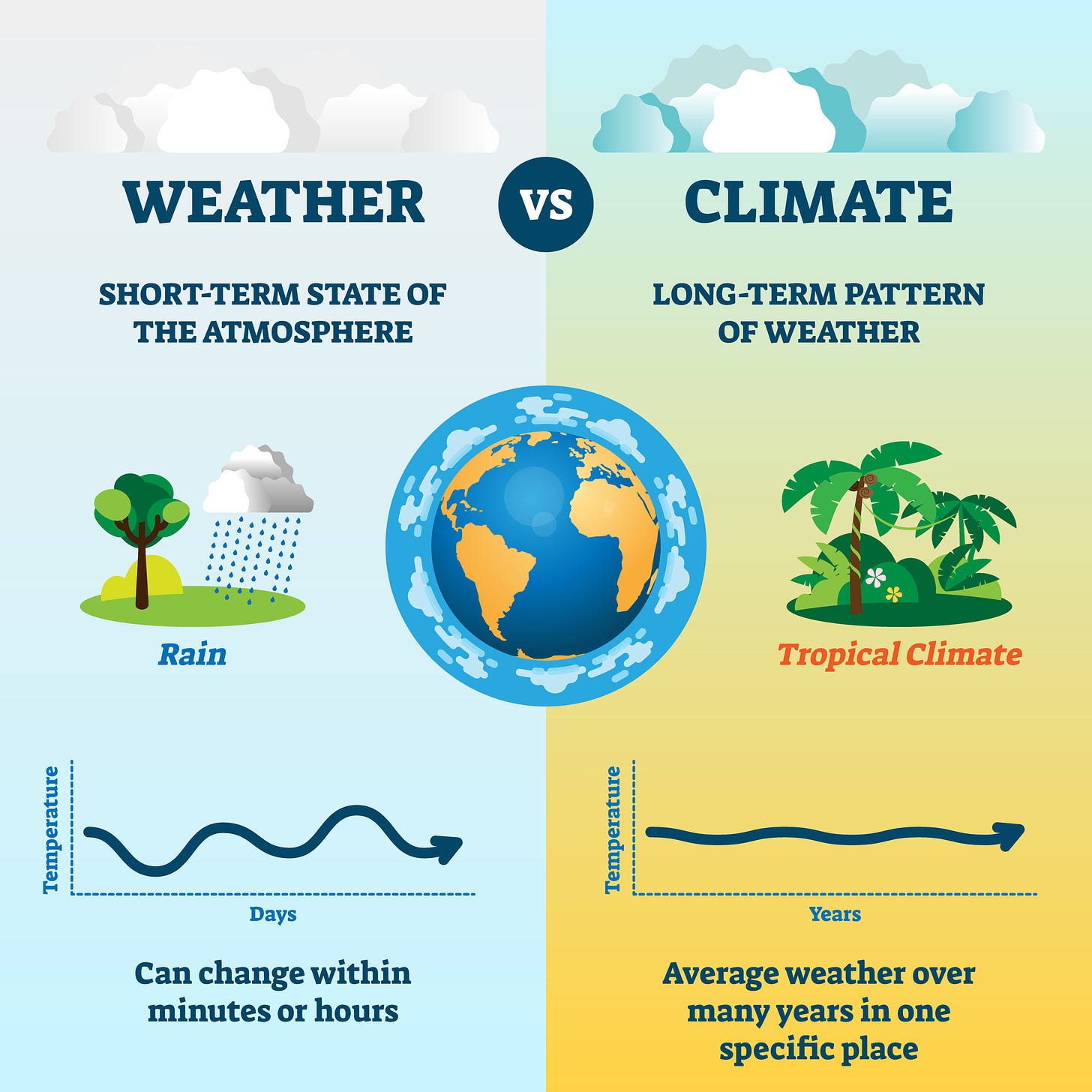Weather events are not climate...
Recently three weather events have been portrayed as evidence of climate change so lets take a closer look.
The difference between weather and climate…
Weather and climate are related but distinct concepts that refer to different aspects of the Earth's atmospheric conditions. Here's a breakdown of the key differences:
Weather: Weather refers to the short-term state of the atmosphere, including conditions such as temperature, precipitation, humidity, wind speed and direction, cloud cover, and atmospheric pressure. Weather conditions can change rapidly and are typically observed over a short period, ranging from minutes to weeks. Weather forecasts provide predictions about the expected atmospheric conditions in the near future, usually up to a few days.
Climate: Climate refers to the long-term average of weather patterns observed over a significant period, typically many decades to centuries or more. It encompasses a broader and more stable view of atmospheric conditions within a specific region or across the globe. The climate is determined by factors such as solar radiation, geographic location, ocean currents, topography, and atmospheric concentrations. Climate characterizes the typical and expected weather patterns, seasonal variations, and overall trends in temperature and precipitation for a particular area.
So, weather represents the day-to-day variation in atmospheric conditions, while climate represents the long-term average and patterns of weather over an extended period. Weather focuses on immediate conditions, while climate provides a broader perspective on the characteristic weather patterns of a region or the planet as a whole.
Can weather events be attributed to climate?
No single weather event can be directly attributed to climate change, however, scientists can analyze the influence of climate change on the likelihood or severity of certain events. This is done through attribution studies, which examine how the probability or intensity of a specific event has been altered by climate change. These studies assess the observed event in comparison to historical data, climate models, and statistical analysis.
How accurate are attribution studies?
Attribution studies have become very popular in recent years, claiming to enhance our understanding of the role of climate change in influencing extreme weather events. However, their accuracy and precision can vary depending on the specific event, available data, and methodologies used. Confidence levels or statistical probabilities are commonly overestimated to indicate a high degree of confidence in the findings. Multiple lines of evidence, including observed data, historical records, climate models, and statistical analysis, are required to strengthen the robustness of the conclusions. Accuracy can vary regionally due to factors such as data quality, regional climate dynamics, and the ability of models to capture regional-scale processes. In fact, a recent pre-print submitted to the Elsevier journal family titled, “Selection Bias in Extreme Event Attribution Studies” states…
Existing work on overcoming selection bias in extreme-value statistics has implications for attribution analysis. Indeed, when such a bias exists, not taking it into account in the forecast evaluation or event attribution can lead to poor, unstable, return levele stimates, to seriously biased estimates of return periods for extreme observations, and hence to potentially misleading conclusions. Conditioning of the likelihood term uses contextual information more appropriately and hence provides more reliable findings.
Let’s take a look at a few recent weather events that have been attributed to climate change…
Keep reading with a 7-day free trial
Subscribe to Irrational Fear to keep reading this post and get 7 days of free access to the full post archives.




